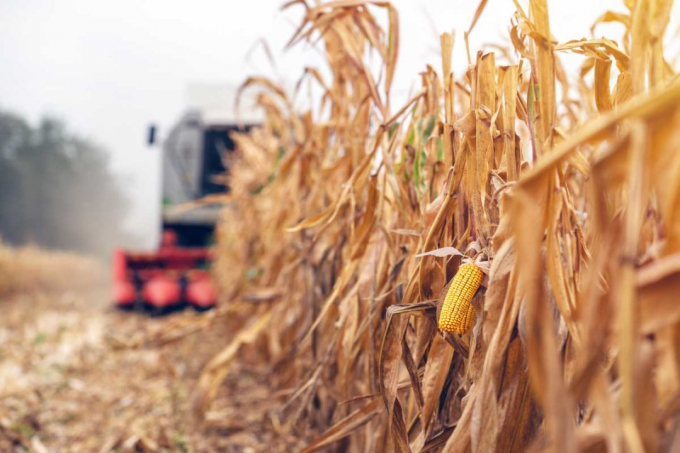June 7, 2025 | 18:42 GMT +7
June 7, 2025 | 18:42 GMT +7
Hotline: 0913.378.918
June 7, 2025 | 18:42 GMT +7
Hotline: 0913.378.918

Brazil corn exports forecast to fall. Photo: Adobe stock
After drought then frosts spoiled much of the crop, Brazilian farmers are now expected to collect 51.6 million tonnes of second corn, almost 19 million tonnes below the 70.5 million from last season, AgRural said.
Second corn, planted after soybeans are harvested, is the country's main corn crop and accounts for 70% to 75% of production in a given year. With second corn, Brazil competes with the United States as one of the world's largest suppliers in world markets, selling to countries like Iran and Japan.
"Failure of the 2021 corn crop, planted with much delay due to the later soybean harvest, was the result of the lack of rain in most of the producing areas in April and May," AgRural said. "The frost starting at the end of June and lasting until now reduced yields and also caused quality problems."
This year, a spoiled second corn crop hurt Brazil's export prospects and increased the need to import.
On July 1, AgRural had predicted the second corn crop would total 54.6 million tonnes, but the unfavorable weather led to another revision in the projection.
The cold and damp of past weeks also limited farmers' harvesting pace, with growers collecting only 49% of their corn area in the center south through last Thursday, below the 61% at the same time in 2020, AgRural said.
(Reuters)

(VAN) With the war ongoing, many Ukrainian farmers and rural farming families face limited access to their land due to mines and lack the financial resources to purchase needed agricultural inputs.

(VAN) Vikas Rambal has quietly built a $5 billion business empire in manufacturing, property and solar, and catapulted onto the Rich List.

(VAN) Available cropland now at less than five percent, according to latest geospatial assessment from FAO and UNOSAT.

(VAN) Alt Carbon has raised $12 million in a seed round as it plans to scale its carbon dioxide removal work in the South Asian nation.

(VAN) Attempts to bring down the price of the Japanese staple have had little effect amid a cost-of-living crisis.

(VAN) Fourth most important food crop in peril as Latin America and Caribbean suffer from slow-onset climate disaster.

(VAN) Shifting market dynamics and the noise around new legislation has propelled Trouw Nutrition’s research around early life nutrition in poultry. Today, it continues to be a key area of research.